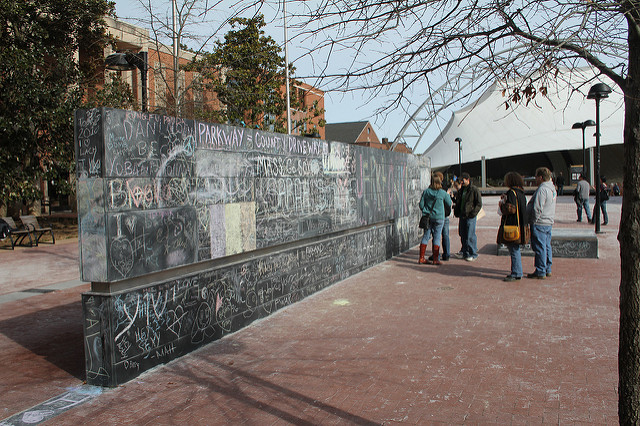Is the outrage over the college admissions scandal about the actions of rich parents and corrupt officials, or that it might force us to confront the myth of meritocracy?
It’s been a week since the scandal broke and the nation is still reeling over the steps some parents will take to ensure their child’s academic future. In an up-to-the minute, news-soaked society, it’s curious that such a story has staying power in the public consciousness. Of course it’s worth noting the scandal is coming to light while Harvard awaits a ruling from the US District Court regarding the legality of their affirmative action admission practices. Apparently, when it comes to college admissions, our society has decided it is problematic to be both from a place of privilege or an underserved community.
The truth is, the notion that college admissions is based upon scholarly aptitude is an exceptionally modern idea. For centuries, access to higher education was reserved for exceptionally wealthy white sons of respected members of society, and the courses of study were limited to medicine, law, or divinity. It was only in the mid-to-late 1800’s that men of color were admitted to a few universities. Even wealthy women from respectable families were not admitted to colleges until the late 1800’s to early 1900’s due to the commonly accepted believe that mensuration limits blood flow to the brain, handicapping a woman’s ability to learn.
Not until the G.I. Bill was the idea of going to college feasible for average Americans. Through the expansion of the Morrill and Smith-Lever Acts, public universities had the financial means to grow their institutions: building more facilities, hiring more faculty, and constructing housing for coeds. LBJ’s Higher Education Act (1965) established the federal student loan system. This seminal law meant practically anyone who wanted to go to college could now afford to do so. Of course being admitted to college was—and still is—a different proposition. Competition grew in correlation to access, and before long schools had the ability to hand-pick their admissions class, on whatever basis they chose. Some college admissions rates dropped to less than 10% while other grew to just over 75%. Clearly, merit was not the only factor at play.
It’s only in last 50 of 383 years of higher education in this country that college has not been reserved for those of extreme privilege and wealth. It’s only in the last few decades has the idea that one’s place at postsecondary institution is due to their merit rather than their gender, status, ethnicity, or nationality.
We often fail to recognize that merit comes from privilege. Personal tutoring, SAT and ACT test prep courses, access to good schools, and taking expensive AP exams doesn’t indicate academic potential, just wealth. The College Board admitted the verbal section of the SAT was biased towards students who come from white, more affluent families. Moreover, merit is often augmented by legacy status and charitable donations. From a college admissions perspective, merit is more about what you have access to rather than your academic abilities.
Even though the actions taken by those involved in the colleges admissions scandal are ethically corrupt, they do fit within the historical narrative of higher education in America. How do we then reconcile the ideal of earning one’s way into college with the reality that socio-economic status plays a significant role college access? What role does affirmative action play? Is not the idea of merit in direct contrast to notion of education as the great equalizer?
This is a complex problem that requires a complex set of solutions. We start by placing accountability and transparency requirements on college admissions offices through legislation like the Higher Education Act, which is slated to be reauthorized this year. Instead of putting pressure on applicants and their families to figure out how to master the admissions system, we must put pressure on colleges and universities to accept more diverse classes. We must reframe the belief that where one is accepted is the final say in one’s academic ability and the prognosticator of one’s future success.

 4 Takeaways from Mass Court Ruling on MIT Student Suicide Case
4 Takeaways from Mass Court Ruling on MIT Student Suicide Case